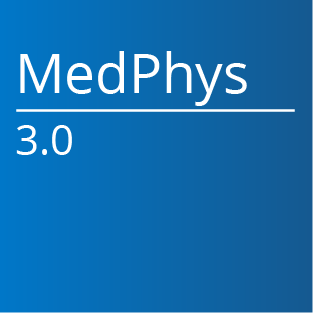
|
MPPG Report 6.a - AAPM medical physics practice guideline 6.a.: Performance characteristics of radiation dose index monitoring systems (2017) Category: MPPG Report Radiation dose index monitoring (RDIM) systems may generally be identified as software that retrospectively collects radiation dose indices (RDI) and other acquisition parameters from imaging studies that use ionizing radiation, and stores those indices in a relational database along with patient demographics. The software typically includes a graphical user interface, which allows the end user to visualize RDI by study type, patient or other category for quality assurance or patient- or study-specific investigations. When utilizing data from these RDIM systems, it is important to understand the applications and limitations of the recorded dose indices.1 At this time, none of the RDI represent location-specific absorbed dose in an individual patient. Most are related to X-ray beam output or X-ray absorption at the image receptor. Software indications of organ absorbed doses and effective dose are based on standardized models of the human which incorporate organ- and tissue-weighting factors adopted by ICRP2 and do not accurately represent the absorption or risk characteristics of any single individual. Standardized human models do not account for the variation observed in size and location of organs within normal individuals, do not account for disease processes, and might not match the age or gender of the patient. Consequently, there are significant limitations to the utility of absorbed and effective dose estimates, detailed discussion of which is beyond the scope of this document. The most significant limitations can be coarsely and briefly summarized as follows: Effective dose does not apply to individuals, and the current state of organ dose calculations in commercial RDIM software is not patient-specific. Journal of Applied Clinical Medical Physics https://doi.org/10.1002/acm2.12089 Altmetrics for this report Dustin A. Gress, Renee L. Dickinson, William D. Erwin, David W. Jordan, Robert J. Kobistek, Donna M. Stevens, Mark P. Supanich, Jia Wang, Lynne A. Fairobent, FHPS |
DISCLAIMER



















